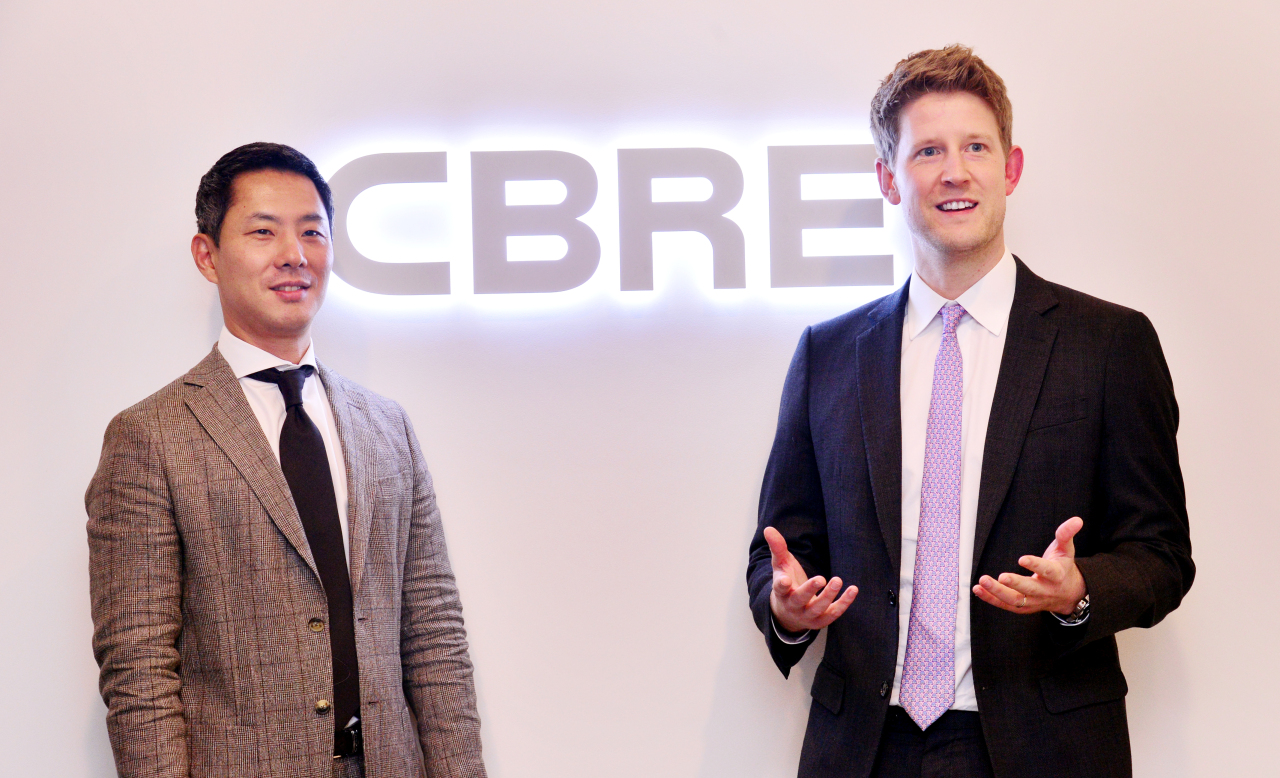The pandemic may have shifted Korean real estate investors away from risk toward more conservative assets overseas in hopes of finding bargains, but they are likely to face strong competition from local investors also looking for a flight to safety, experts here said.
“During 2020, many investors, including Korean investors, have been anticipating a discount for core assets as a result of the coronavirus, but this discount has not materialized,” Sean Choi, head of the capital markets team at CBRE Korea, a local branch of the US commercial real estate service, said in an interview with The Korea Herald. “Core assets are in high demand from European domestic investors.”
While the coronavirus pandemic has had an apparent downward impact on global commercial real estate assets, demand for safe assets -- often categorized as “core” -- is on the rise.
“The fact is, there is a lot of competition from European capital, for example, to buy European assets. Whereas Koreans and Singaporeans and Japanese or other Asian investors might be hoping for a discount, European money is still willing to pay the price for very safe core investment,” said Tom Jeanes, associate director of the capital markets team at CBRE Korea.
Over the past few years, Koreans have become one of the fastest-emerging groups of investors in the safe commercial real estate markets in Europe and the United States.
In 2019, Korean outbound investments jumped by two-thirds to $12.5 billion, with 70 percent of them going to Europe, CBRE data showed.
Before the novel coronavirus outbreak, Korean investors were increasing their exposure to riskier investments -- turning to multitenant buildings and expanding to areas that are more off the beaten track, rather than buying single-tenant properties in international transportation hubs such as London, Paris and Frankfurt.
Now that the pandemic has battered the market, Korean investors are returning to their traditional investment strategy in Europe.
The uncertainties caused by the pandemic have put Korean investors to the test in their overseas alternative investments, as advantages they have enjoyed the last couple of years are on the wane. The advantage of currency hedging for Korean investors in European assets, for instance, has shrunk over the past 12 months.
Travel restrictions are also hampering their efforts to conduct in-person due diligence.
“We are seeing Koreans start to plan for non-travel investments, we think there’s potential for Koreans to close deals in Q4,” said Jeanes.
This is based on the premise that an investment committee could become comfortable with travel restrictions. Using technology provided by the broker, including video tools, could help investors conduct site visits via camera and conference calls instead, Jeanes added.
In the meantime, Korean investors’ relatively high exposure to US hotel mezzanine debt is becoming a headache.
“In the past, when investing in US real estate, Korean investors mainly invested in mezzanine financing, not equity, as they held a conservative view on hotel investment in the US,” Choi said. “Since the outbreak of COVID-19, the hotel economy has slowed down, thereby affecting loans. Korean investors need to be aware of this change.”
Choi and Jeanes are tasked with brokering cross-border deals mainly for Korean clients such as asset management houses and brokerage houses.
CBRE’s latest deals include NH Investment & Securities’ acquisition of OP Financial headquarters in Helsinki, Kiwoom Securities’ ING headquarters in Madrid and Mirae Asset’s Tour Majunga in Paris -- all signed before the coronavirus pandemic.
By Son Ji-hyoung (
consnow@heraldcorp.com)






![[Herald Interview] 'Trump will use tariffs as first line of defense for American manufacturing'](http://res.heraldm.com/phpwas/restmb_idxmake.php?idx=644&simg=/content/image/2024/11/26/20241126050017_0.jpg)
![[Exclusive] Hyundai Mobis eyes closer ties with BYD](http://res.heraldm.com/phpwas/restmb_idxmake.php?idx=644&simg=/content/image/2024/11/25/20241125050044_0.jpg)
![[Herald Review] 'Gangnam B-Side' combines social realism with masterful suspense, performance](http://res.heraldm.com/phpwas/restmb_idxmake.php?idx=644&simg=/content/image/2024/11/25/20241125050072_0.jpg)